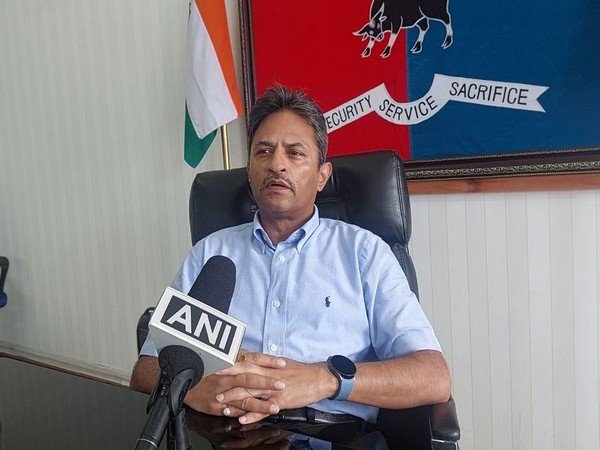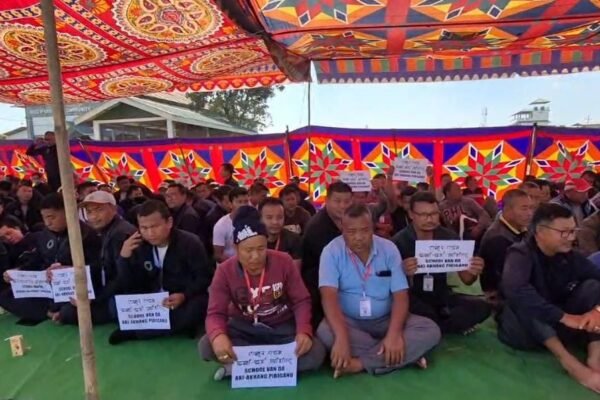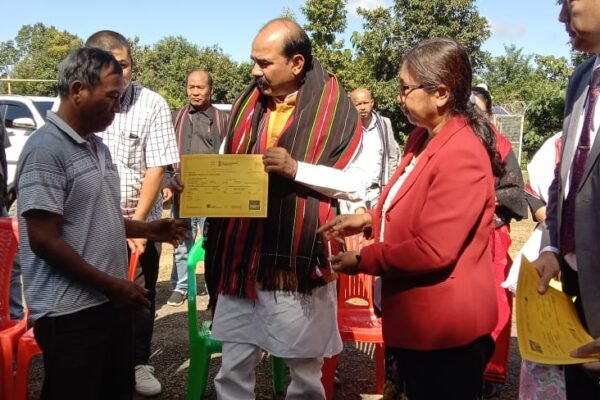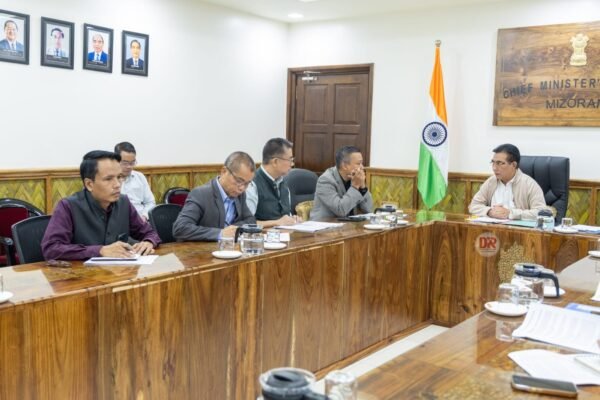Dimapur, Nov 13: Nagaland Director General of Police Rupin Sharma has described the growing drug menace in the Northeast as both a “public health emergency” and a “national security threat,” urging for a unified, technology-driven regional strategy to combat the crisis.
Speaking at the inaugural session of the two-day Conference of Anti-Narcotics Task Forces (ANTF) for the Northeast, including Sikkim and West Bengal, held at Chumoukedima, Sharma said the region has become the “pivot” of India’s fight against narcotics due to its proximity to the Golden Triangle and the porous India–Myanmar border. The conference is being co-hosted by the Narcotics Control Bureau (NCB) and Nagaland Police.
The DGP cautioned that the unfenced border under the Free Movement Regime allows traffickers to exploit ethnic ties and cross freely. “Drug trafficking and abuse are no longer just law-and-order issues—they pose direct threats to internal security and the future of our youth,” he said.
Citing estimates, Sharma revealed that Nagaland has around 1.2 lakh drug users, with heroin locally known as ‘Shaanflower’ being the most commonly abused substance. He noted that if even half of these users consume half a gram a day, Nagaland would require over 10,000 kilograms of heroin annually, while the entire Northeast would need nearly one lakh kilograms.
Sharma linked the narcotics trade to organised crime, insurgency, and narco-terrorism, stressing that dismantling drug cartels directly strengthens national security. He proposed a three-pronged approach based on coordination, enforcement, and accountability, and called for greater inter-state collaboration.
“We must move from a ‘need to share’ to a ‘duty to share’ mindset,” he said, suggesting joint interrogations via video conferencing and real-time data exchange through portals like NIDAAN and NCORD.
Emphasizing the need for modern tools such as darknet analysis, cryptocurrency tracking, and digital forensics, he also recommended the use of drones and satellite mapping to detect poppy fields and hidden drug laboratories. Sharma urged that financial investigations involve banks and the Financial Intelligence Unit (FIU) beyond conventional office hours.
He identified weak prosecution as a major challenge in anti-drug efforts and called for better documentation of evidence under the NDPS Act, along with the creation of a shared biometric criminal database across agencies.
Among the policy suggestions, the DGP proposed amendments to the NDPS Act, 1985, to address modern challenges, establishment of a dedicated Northeast Anti-Drug Trafficking Agency, and creation of Narcotics Forensic Labs in every state. He also recommended launching a public “Nasha Mukt Bharat Helpline & Reward System” and standardising preventive detention guidelines under PITNDPS.
Highlighting Nagaland Police’s use of advanced technologies such as AI-assisted intercept transcription, ANPR cameras, and facial recognition systems, Sharma said rehabilitation should be viewed as “a defeat for the cartel.” He called for active participation from NGOs, churches, and civil society groups.
“The battle against drugs is a prolonged war fought on tough frontiers. Let us target the kingpins, strengthen inter-agency trust, and secure the future of the Northeast for a truly drug-free India,” Sharma concluded.









